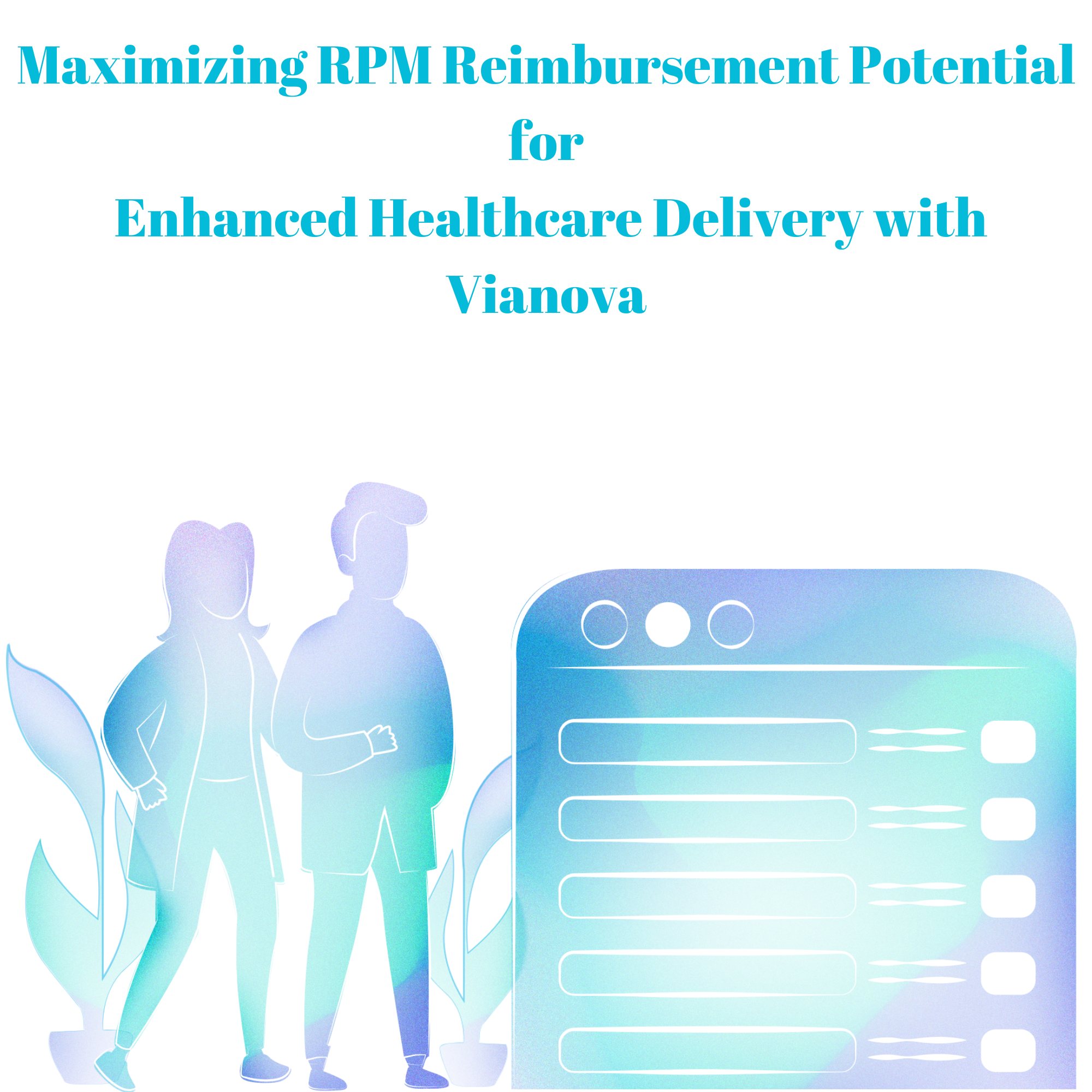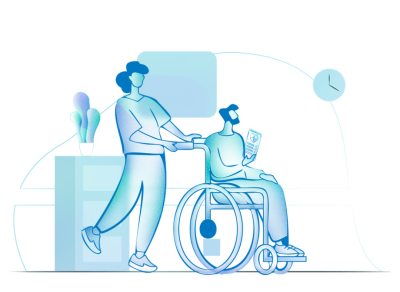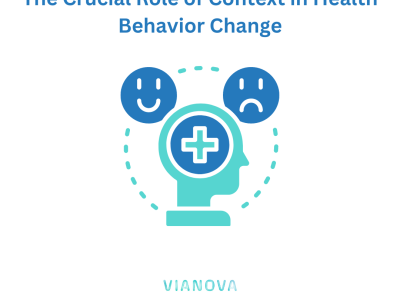
Maximizing RPM Reimbursement Potential for Enhanced Healthcare Delivery with Vianova
Remote patient monitoring (RPM) has emerged as a cornerstone of modern healthcare, offering personalized care solutions that transcend traditional boundaries. At Vianova, we recognize the transformative power of RPM in enhancing patient outcomes and streamlining care delivery. Today, we delve into the evolving landscape of RPM coding and its implications for providers, patients, and payers alike.
RPM billing primarily revolves around four Current Procedural Terminology (CPT) codes, each delineating specific aspects of the monitoring process. These codes, categorized into device monitoring and timed management services, form the backbone of RPM reimbursement.
CPT 99453 and 99454 encompass the initial setup and monthly monitoring of RPM devices, respectively. While CPT 99453 focuses on patient enrollment and device setup, CPT 99454 pertains to ongoing data transmission and evaluation. These codes represent the foundation upon which RPM services are built, facilitating seamless patient engagement and continuous care management.
On the management front, CPT 99457 and 99458 delineate the provision of care management services based on RPM data. CPT 99457 involves a minimum of 20 minutes of clinical staff time, while CPT 99458 extends this to 40 minutes, with additional increments thereafter. These codes underscore the integral role of care coordination in optimizing patient outcomes and driving preventive care initiatives.
While the existing coding framework has laid a solid groundwork for RPM reimbursement, recent developments hint at a broader horizon. Proposed changes, slated for discussion at the American Medical Association’s May CPT Editorial Panel meeting, promise to usher in a new era of RPM coding.
One significant proposal entails the introduction of a code covering two to 15 calendar days of collected data, offering greater flexibility in billing for shorter monitoring periods. This expansion reflects a nuanced understanding of patient needs and the evolving nature of healthcare delivery.
Additionally, revisions to existing codes, such as CPT 99457, aim to streamline care management requirements, making RPM services more accessible and provider-friendly. By reducing the threshold for billable care management time, these changes seek to incentivize RPM adoption and foster a culture of proactive patient care.
At Vianova, we are committed to staying at the forefront of these developments, empowering our clients with cutting-edge RPM solutions and comprehensive support services.
As the healthcare landscape continues to evolve, RPM remains a pivotal tool in driving positive health outcomes and improving access to care. By embracing coding reforms and harnessing the full potential of RPM, we can pave the way for a future where healthcare is truly personalized, accessible, and effective for all.
Join us as we embark on this journey towards a healthier, more connected future with Vianova’s leading RPM solutions and unwavering commitment to innovation. Together, let’s redefine healthcare and empower individuals to thrive in an era of unprecedented possibilities.



FEEL FREE TO DROP US A LINE.